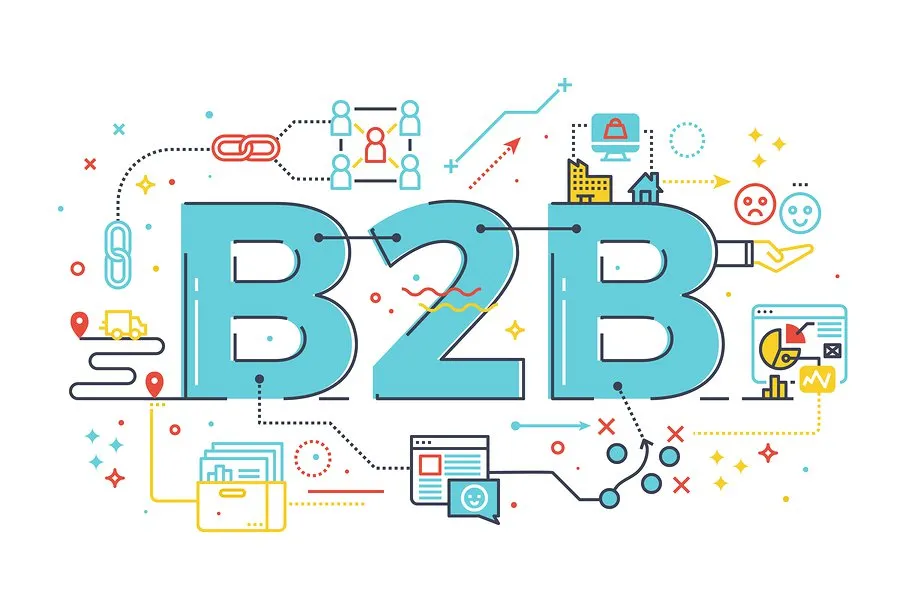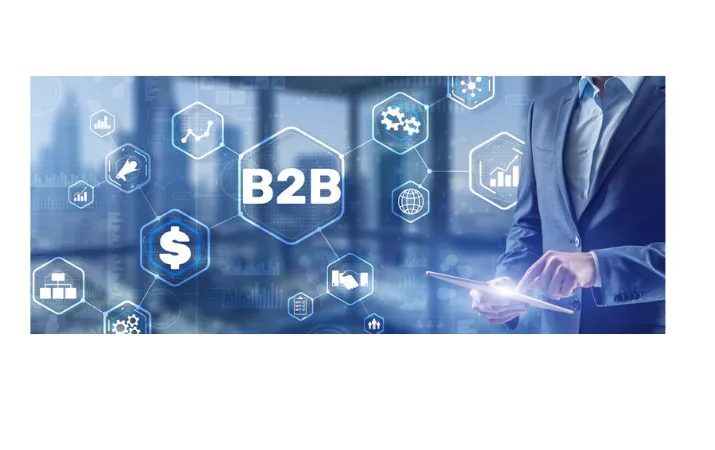What drives customers to make their ultimate purchases? What motivates people to select a certain product or service over others? We wish it were as simple as pricing disparities or customer service for B2B Sales Teams.
It's not the case. Consumers make final buying decisions for a variety of reasons. We'll look at the most important motivators and how a CRM database may help. But first, let's look at the major distinctions between B2C and B2B buyer motivations.
What are the Difficulties for B2B Sales Teams
We believe it is critical for B2B sales personnel to understand all customer motivations, not just those related to B2B sales. However, there are certain fundamental problems unique to B2B sales teams that seem to be worth exploring.
First, B2B sales must focus on long-term partnerships, whereas B2C sales can focus on transactional interactions. This has a clear impact on each strategy.
Long-term connection building has an impact on how businesses promote themselves. However, it is just as vital for both types of organizations in this case; it is just done slightly differently. B2B branding typically focuses on relationship branding, whereas B2C branding focuses on communications.

Because the sales cycle for B2B companies is so much longer, they must ensure that open channels of communication are established. B2C companies, on the other hand, have a tighter sales cycle and must concentrate on streamlining their message. This plan can assist them to avoid missing out on any possibilities.
These problems further emphasize the need for a CRM database to store and make pertinent data accessible. It provides all of the information needed to establish and nurture these partnerships, as well as guide customers in via the sales cycle.
Also Read: How To Write A Cold Email To An Investor: A Step-By-Step Guide
To make matters even more complicated, the year 2020 has altered much of what we previously knew about B2B marketing. Gartner presented a report that identifies the six characteristics that will define the B2B buyer, including:
- Customer satisfaction is no longer sufficient to persuade businesses to purchase, it is only enough to get them to repurchase.
- If a purchase is excessively complex, unknown, hazardous, or disruptive, organizations lose interest.
- Customers must have faith in their own judgments in order to keep making purchases.
- Buyers can become overwhelmed by too much information, such as reviews and price comparisons, resulting in an inability to make a buying decision.
- Customers' perceptions of salespeople are crucial in closing deals.
- The degree to which customers trust the knowledge they have has a significant impact on whether or not they are able to close sales.
The reality of B2B sales is also worth investigating, but for the sake of this essay, we'll focus on the ten buyer motives that every B2B sales team should be aware of.
How Customer Emotions Influence B2B Purchasing Decisions

1. Emotional Connection Builds Customer Loyalty
When customers experience a strong emotional connection to a brand, they tend to develop customer loyalty. This bond goes beyond functional benefits, such as price or product features.
Emotional factors like trust and brand affinity are often the deciding factors in purchase decisions.
For B2B companies, understanding and fostering this emotional bond can lead to long-term loyalty and repeat business. Buyers who feel connected to a brand are more likely to choose that company over others, even if alternatives exist.
2. Motivating Factors Shape the Buying Journey
Customer emotions are key to identifying the motivating factors that drive purchasing decisions. In the B2B sector, these can range from saving time to ensuring security or money.
When a product or service promises to solve a problem—such as increasing productivity or reducing costs—it taps into the customer's emotional needs.
This is why it's essential to align your messaging with what motivates customers on a deeper level, rather than just focusing on features. Understanding the buying journey helps craft marketing messages that resonate emotionally with your target audience.
3. Emotional Motivators Drive Purchase Decisions
When customers feel that a purchase aligns with their emotional needs—like feeling unique or gaining social approval—they are more likely to move forward with it.
B2B buyers aren’t immune to emotional drivers like social connection and emotional motivators.
For example, a buyer might choose a product not only for its features but also because it promises to elevate their status or improve their company’s brand. Key motivators include feelings of security, a sense of desire, and the reassurance of making the right choice for their company.
4. The Role of Trust in Customer Emotions
In the B2B world, trust is a cornerstone of customer emotions. Building trustworthiness and offering consistent quality can lead to strong brand affinity. When customers trust a brand, they are more likely to make purchases and recommend the brand to others.
Emotional motivators like trust and sense of security often outweigh price concerns, as buyers value reliability and long-term benefits. A company that consistently delivers on its promises forms a deep emotional connection with its customers.
5. Consumer Behavior is Influenced by Emotional Needs
Understanding consumer behavior means recognizing how emotions influence buying decisions. In B2B, this can be linked to the buyer’s mental health, their desire to make a purchase that feels good, or their need for reassurance through positive future outcomes.
The emotional state of a buyer—whether they are seeking self-improvement or looking for a product that will make their work life easier—can significantly shape the buying motives.
When sales teams tap into these emotions, they can tailor their strategies to better meet the buyer’s needs.
In conclusion, customer emotions are central to the B2B purchasing process. By recognizing and addressing these emotional triggers, businesses can create stronger, more lasting relationships with their customers, drive higher conversion rates, and ultimately influence their buying decisions.
Emotions drive not just immediate sales, but also customer experience and future loyalty. Understanding the psychology behind what motivates customers allows B2B teams to improve their approach and create deeper, more meaningful connections.
10 Key Customer Motivation Drivers for B2B Sales Teams

1. Great Fit
When a product or service meets a customer's demands, it's one of the most compelling reasons to buy. It's important to make sure your customers are aware of your products or services, as well as the concerns they solve, so they can decide if they're a suitable fit.
2. FOMO
Some customers buy merely because they don't want to miss out on something. This is true of many B2C technologies or styles, but it is less true of B2B businesses. Marketing your products as the next must-have item can assist, but having a product that is highly sought is essential.
3. Fear in General
Another powerful B2B sales strategy is to capitalize on your potential customers' worries. Customers will pay attention if you give them a sense of urgency to buy based on their fears of damage, safety, or financial hardship. This is a typical strategy used by companies selling everything from alarm systems to toothpaste to convey the impression that consumers will suffer if they do not purchase the goods.
4. Overall Well-being
Physical and mental wellbeing are trendy topics these days and rightfully so, given the global health catastrophe, we're facing. The health implications of items or services on the market will motivate many potential buyers. Buyers can be easily motivated by considering the advantages that organizations can deliver to customers that are linked to their well-being.
5. Thrilling
You might be able to achieve impulse purchases by creating excitement about your product for select lucky B2C sales teams. This is less common in B2B sales, but if you can get them excited about your product, it may surely help with longer-term relationship building.
6. Luxury
You can entice folks who have specific wants rather than requirements if you supply a product or service that can be deemed a luxury. Customers that have some disposable wealth and enjoy fast automobiles or peaceful holidays would benefit from this.
7. Financial Gain
Focusing on the financial gain consumers can enjoy is a primary buying incentive for B2B firms. Inform potential clients about how your specific solution will help them boost their return on investment. Most businesses understand the value of money.
8. Self-improvement
Anything that aids in self-improvement is another prominent topic that inspires customers. Although this is primarily a B2C benefit, some B2B enterprises may profit if you can provide solutions for companies to assist their employees in achieving their self-improvement goals.
9. Expertise
Competence is one of the most important motivators for business buyers. The buyer is significantly more motivated if the purchasing organization believes the selling organization is competent with its offering.
10. Trustworthiness
Credibility is another major buyer incentive. According to Forbes, publishing high-quality material in a helpful manner can help firms establish themselves as respectable and even experts in their fields.
How Can Understanding Your Target Audience Improve Sales?

1. Tailoring Your Messaging to Customer Needs
One of the most significant advantages of understanding your target audience is the ability to create messaging that speaks directly to their needs and emotions.
When you know what motivates customers, you can craft messages that resonate more deeply with them. If your product or service solves a problem they care about, like improving customer experience, saving time, or offering better securit, your messaging will be far more effective.
For instance, if you're marketing a product aimed at self-improvement or mental health, aligning your messaging with those emotional drivers can help establish an instant connection.
2. Building Stronger Relationships with Customers
When you truly understand your audience, it’s easier to build genuine relationships based on trust. This is where customer loyalty comes into play. Understanding what your customers value, whether it’s life easier solutions, social connection, or strong brand affinity, helps you connect with them in meaningful ways.
If your target audience feels understood, they are more likely to stay loyal to your brand and engage with it on a deeper level. This emotional connection not only drives purchases, but also encourages long-term loyalty.
3. Identifying the Right Motivators to Drive Action
Understanding your audience's motivating factors allows you to design sales strategies that focus on their emotional needs.
Whether it's the need for social approval, a desire for financial gain, or simply a need for better customer experience, tapping into these motivators will make your offerings much more appealing.
For example, a buyer who values security might respond well to a product that promises data protection. Similarly, highlighting the benefits of saving time or making life easier can appeal to someone who is looking for simplicity in their business processes.
4. Creating Targeted Offers and Campaigns
With a clear picture of your target audience, you can create targeted offers that meet their needs and wants.
Whether you’re promoting luxury items, extreme sports gear, or even a service that enhances mental health, understanding what appeals to your audience makes it easier to develop specific offers.
Instead of a one-size-fits-all approach, you can segment your audience and create tailored campaigns. A well-targeted offer that addresses their specific desires will result in higher conversion rates and greater customer satisfaction.
5. Predicting and Shaping Customer Behavior
The more you know about your target audience, the better you can predict and shape their future buying behavior. Big data analytics and past purchase history can help identify trends and patterns in how customers make decisions.
By analyzing these behaviors, you can anticipate their next move, whether that’s a potential purchase decision or a need for more sales.
You can also use this information to craft future campaigns that align perfectly with their interests and emotional triggers, leading to a more personalized and effective sales strategy.
6. Enhancing Customer Experience Through Personalization
Understanding your target audience allows you to personalize your customer interactions. Personalization is key to creating a memorable customer experience.
When customers feel that your product or service is tailor-made for their needs, whether it's the result of buying motivation or an appeal to their emotional needs, they’re much more likely to engage and follow through with a purchase.
In fact, this personalized touch makes them feel valued and unique, which can have a huge impact on purchase decisions and long-term loyalty.
The more you understand your target audience, the better you can align your sales efforts with what they truly care about. It’s not just about selling a product, it’s about connecting with people on an emotional level, understanding their motivations, and giving them what they need to succeed.
When you focus on customer emotions, motivating factors, and tailor your approach to meet these needs, you’ll see stronger relationships, increased sales, and customers who keep coming back. So, get to know your audience better, and let that understanding guide your sales strategy!
What Can a CRM Database Do?

As we've seen, B2B sales face different problems than B2C sales. As a result, good CRM database suppliers enable B2B sales teams to collect, retain, update, and access all of their customers' and prospects' data in order to cultivate those priceless relationships.
Alore CRM is a comprehensive all-in-one CRM database system that not only collects this data but also allows for sales and marketing automation capabilities, allowing your teams to accomplish exponentially more in less time.
It's also available from anywhere because it's a cloud-based solution, which helps teams deal with some of the difficulties faced by many who continue working remotely.
Conclusion

Though it may appear tough to discover your specific consumers' reason, going to this list of top customer motives that your sales team must be aware of can make it easier.
Maintaining awareness of these top motivations will assist you in selling the correct advantages to the right clients and increasing conversions. Establishing an effective CRM database will be critical to collecting the necessary data to determine motives.

.webp)





.jpg)

